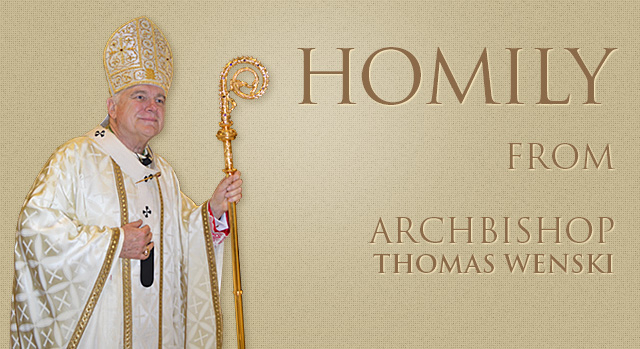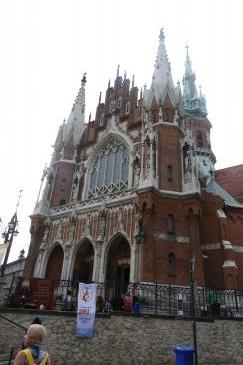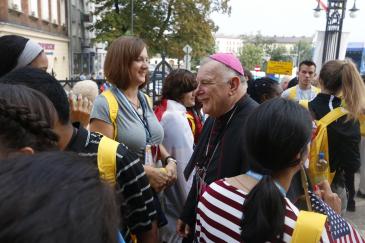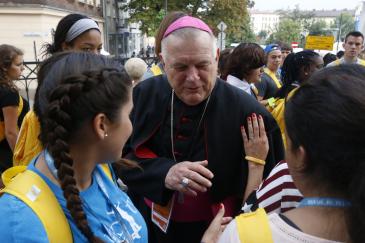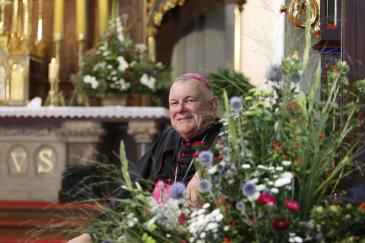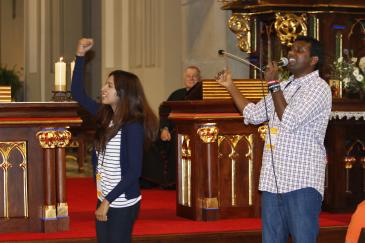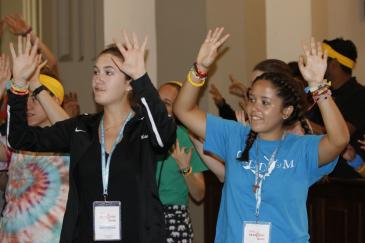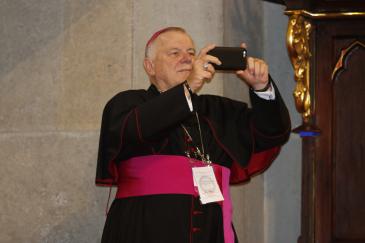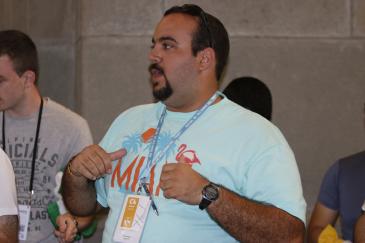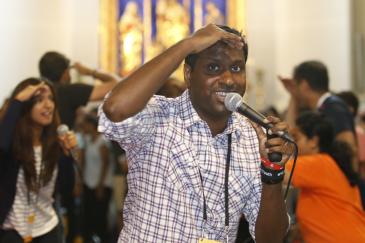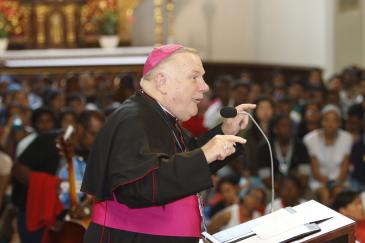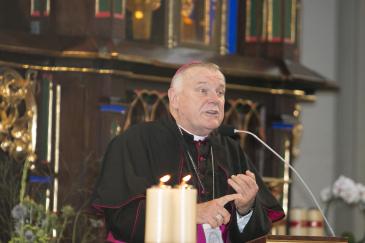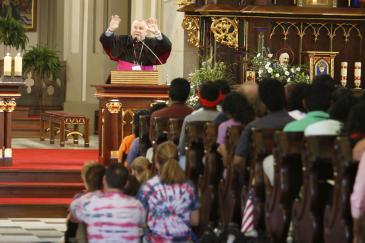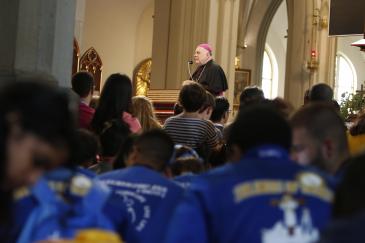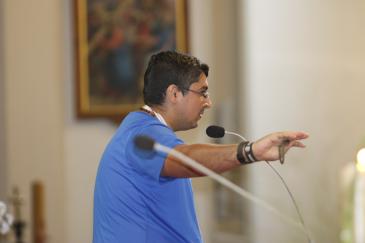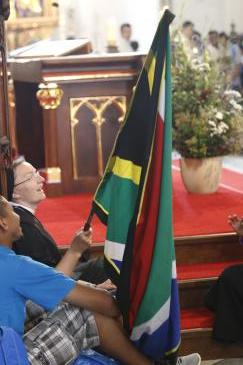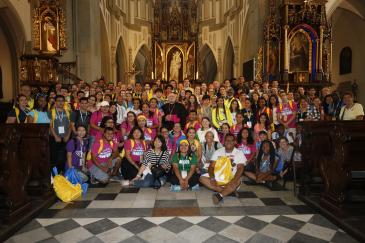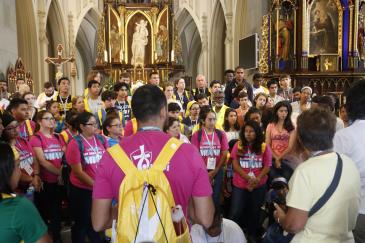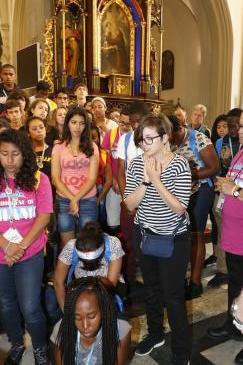By Archbishop Thomas Wenski - The Archdiocese of Miami
Photography: ANA RODRIGUEZ-SOTO | FC
Day one of the catechesis given by Archbishop Thomas Wenski to about 600 youths in St. Joseph's Church in Krakow, Poland, as part of the World Youth Day events. July 27, 2016.
"Now is the time for mercy" begs the question, "Why now?" Without mercy, there is no hope. Today we live in a world that has lost hope. Am I exaggerating? I think not. Many of the problems that confront us are symptoms of the loss of hope. Terrorism is perpetrated by people who usually end their own lives as well as those of others. They do so in the service of an essentially hopeless ideology. The social pathologies of our times - drug addiction, abortion, promiscuity are symptoms of a loss of hope. Even the dropoff in Mass attendance points to a loss of hope - for only people who have hope pray. The whole sacramental system of the Church is based on hope - for the Mass itself is the anticipation of future glory, the heavenly banquet.
Where does this hopelessness come from? From the closing of our minds and hearts to infinity, to transcendence, to the God who made us for himself. Without acknowledging transcendence, then we exist just so that we can die one day. This is the crisis of our age - the modern and/or post modern times that we live in. This age is defined by secularism - which is a way of thinking, a way of living and organizing our societies as if God does not matter.
This crisis has been going on for some time. In the aftermath of the Second Vatican Council, some thought that the root of the crisis was that modern man - with the advances in science and technology - lost his capacity to believe. We are too sophisticated to believe in God, in heaven, in the teachings of the Church. And so, to make the Church attractive to the modern mind, it was thought that the Church and her teachings had to be "modernized" by downplaying what seemed to be too incredible. But the problem is not that people today can't believe in anything; the problem is that they will believe anything. Without a hope in what is beyond ourselves, without the hope of heaven, we look to ideologies that are poor substitutes for hope. In the 20th Century we saw ideologies like Marxism and Nazism that attempted to build heavens on earth. They ended up making the earth a hell. There are other substitutes for real hope: consumerism as well as those ideologies of sexual liberation that, in the name of freedom, "free" sex from consequences and from meaning. Pope Benedict said it this way: A world without God is a world without hope; a world without God is a world without a future. As I said earlier, people without hope don't pray; but they also don't have kids or form families.
So is this a time for mercy? You betcha. Hope in God's mercy opens our horizons and gives us true freedom. It provides us with a future - a future made possible because God's grace is more powerful than our disgrace. Jesus in suffering, dying and rising again broke the chains of death and in doing so opened the doors to hope. Jesus is the human face of God and the divine face of Man - in him is our hope.
Sister Faustina lived in the first half of the 20th century, as did Maximilian Kolbe. For you, that might seem a very long time ago; but we're in a city in which many buildings were ancient even before the American Revolution. Their times are our times, their witness to hope is meant for us today.
We too are called to witness to hope. We do this through prayer and participation in the sacramental life of the Church. We do this by loving as Jesus himself has loved us. Jesus gives us his Holy Spirit who teaches us a new language - a language that enables the youth of the world to communicate with each other at this World Youth Day. It is the language of love.
Now is the time for mercy. If love is the language that the Christian speaks, the language that defeats the Babel of confusion, conflict and suspicion, that language also has a grammar. To speak a language well, to be understood and to understand a language, you need to master the grammar. People can speak ungrammatically but they're not always well understood; misunderstandings occur, etc. Well, love has a grammar and the grammar of love is mercy.
Now is the time of mercy, to learn the grammar of love through the corporal and spiritual works of mercy, to learn the grammar of love by forgiving and offering forgiveness. Mercy makes hope possible in a world that has lost hope.
